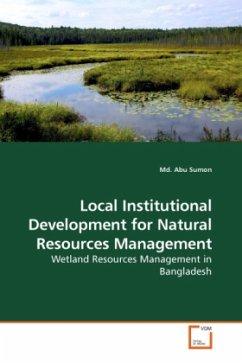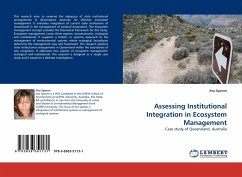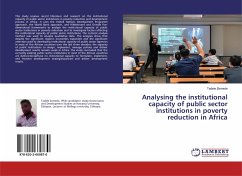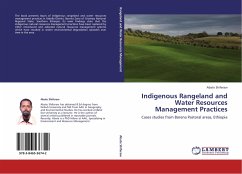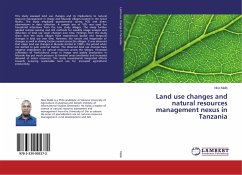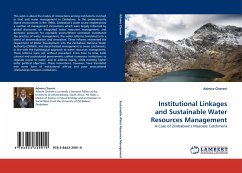
Institutional Linkages and Sustainable Water Resources Management
A Case of Zimbabwe's Mazowe Catchment
Versandkostenfrei!
Versandfertig in 6-10 Tagen
45,99 €
inkl. MwSt.

PAYBACK Punkte
23 °P sammeln!
This work is about the modes of interactions among institutions involved in land and water management in Zimbabwe. In the predominantly liberal environment in the 1990s, Zimbabwe's water sector implemented a number of management innovations which were largely informed by global discourses on integrated water resources management, and domestic pressures for equitable access.Where centralism constituted the practice of water management, the water reforms translated into a blend of decentralization and centralism. These reforms reinvented the Department of Water Development into the Zimbabwe Nati...
This work is about the modes of interactions among institutions involved in land and water management in Zimbabwe. In the predominantly liberal environment in the 1990s, Zimbabwe's water sector implemented a number of management innovations which were largely informed by global discourses on integrated water resources management, and domestic pressures for equitable access.Where centralism constituted the practice of water management, the water reforms translated into a blend of decentralization and centralism. These reforms reinvented the Department of Water Development into the Zimbabwe National Water Authority (ZINWA), and decentralized management to seven catchments, in line with the hydrological approach to water resources management. These reforms were not without precedent. From time to time, both colonial and postcolonial governments crafted numerous institutions to regulate access to water, and to address equity, while meeting higher order political objectives. These innovations, however, have translated into some form of institutional pile-up and poor associational relationships between institutions.



